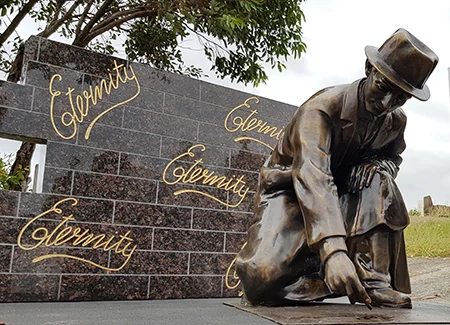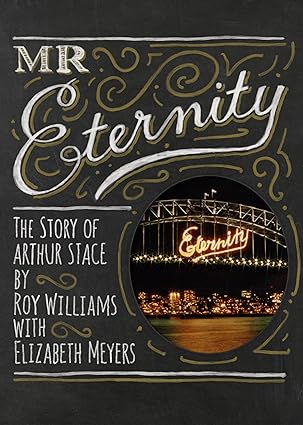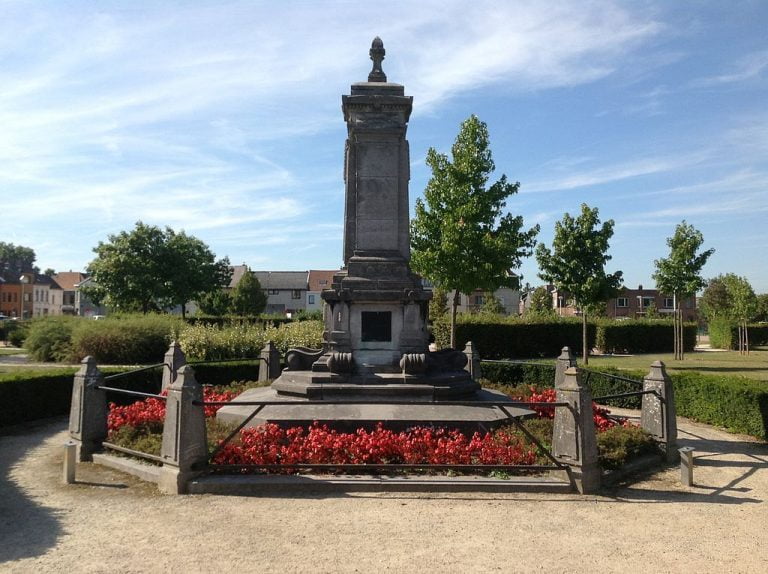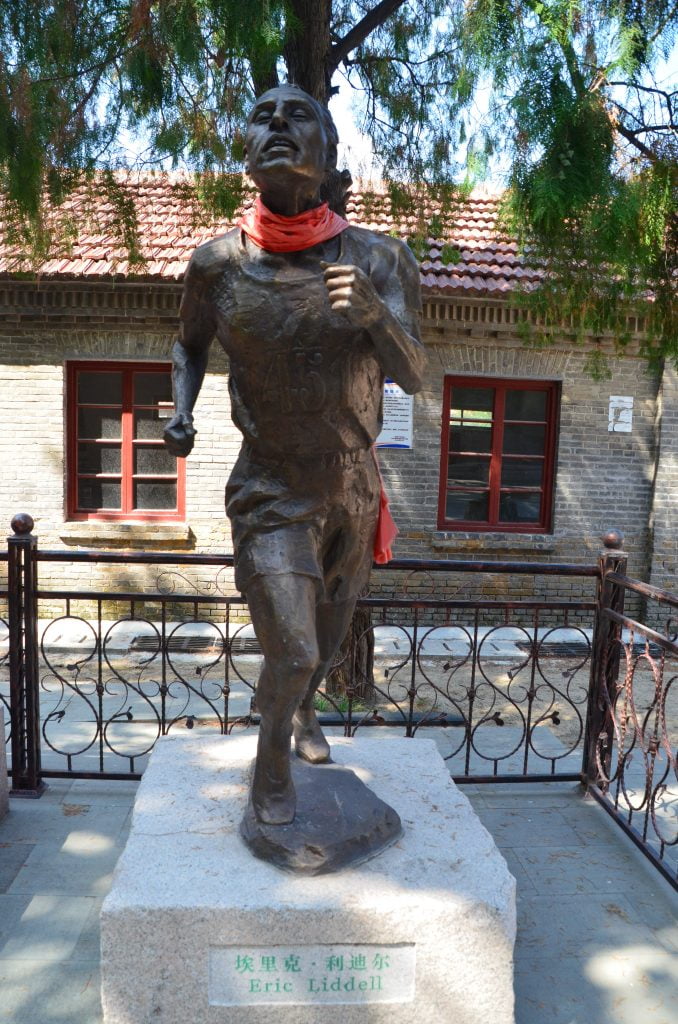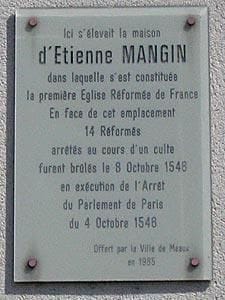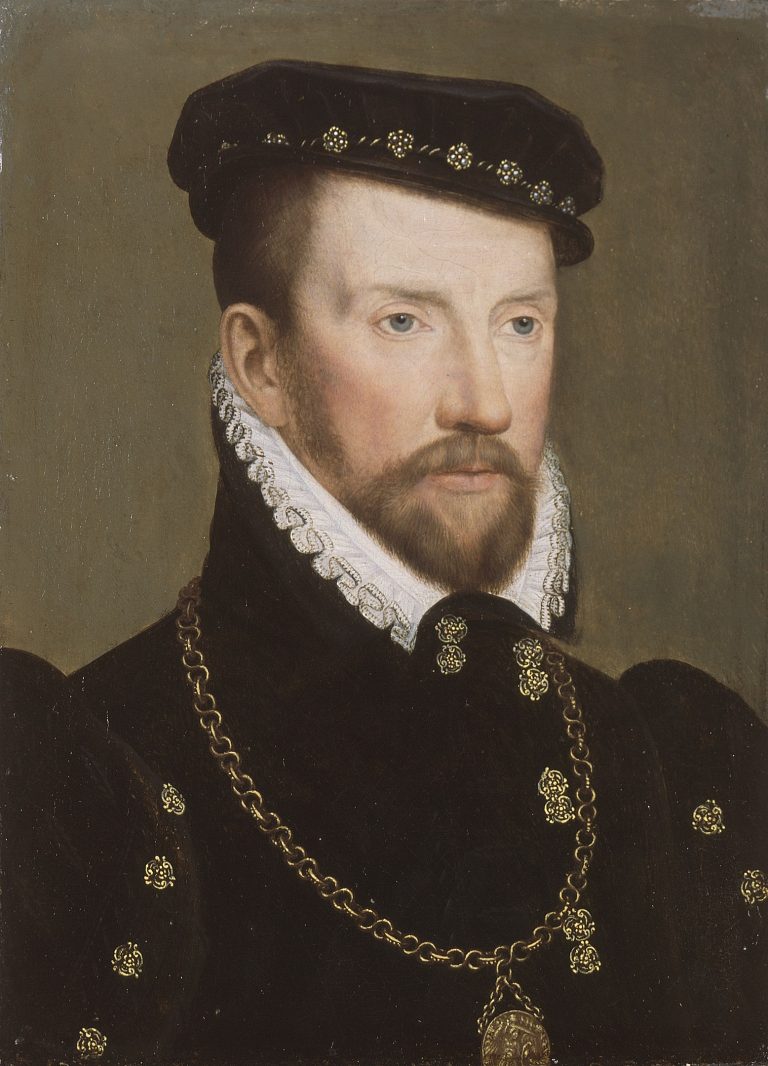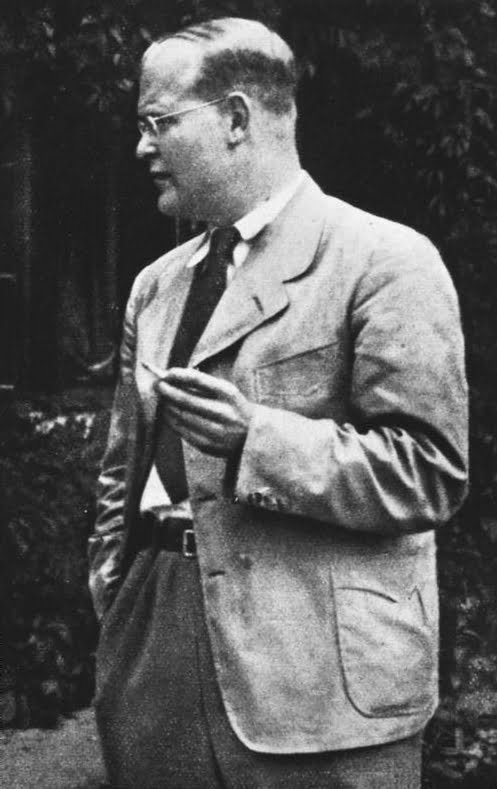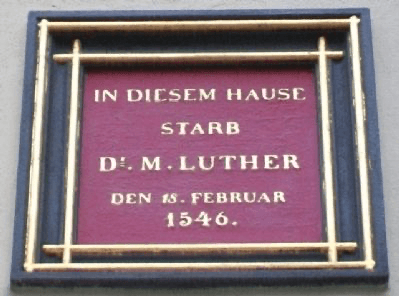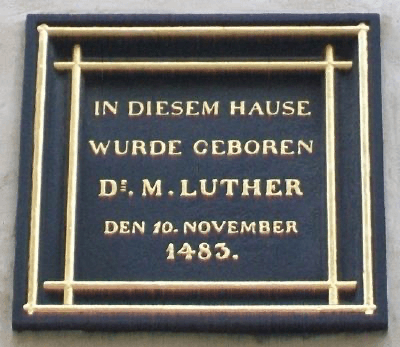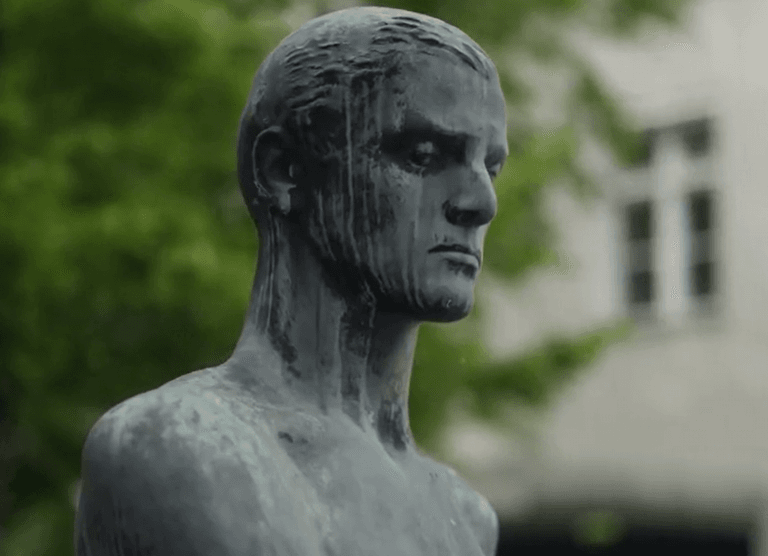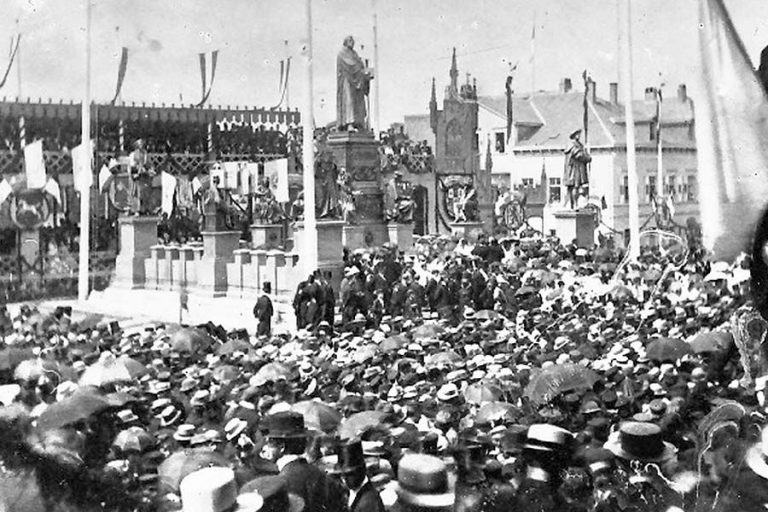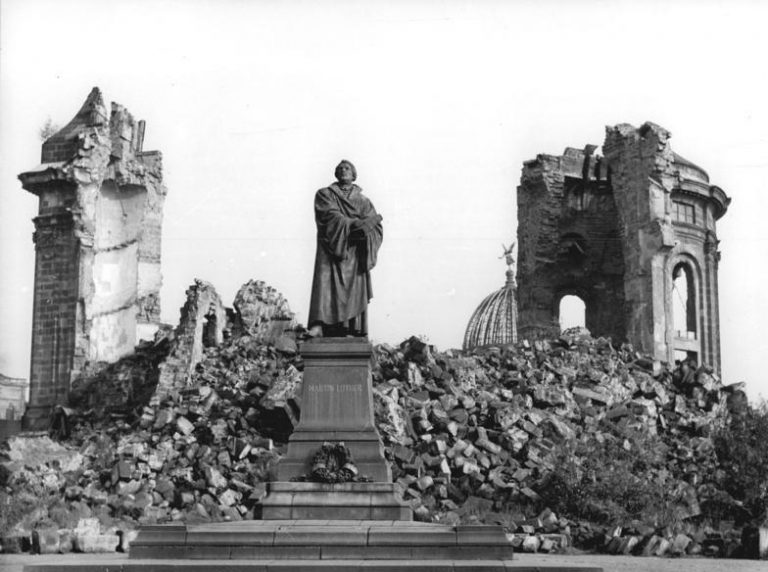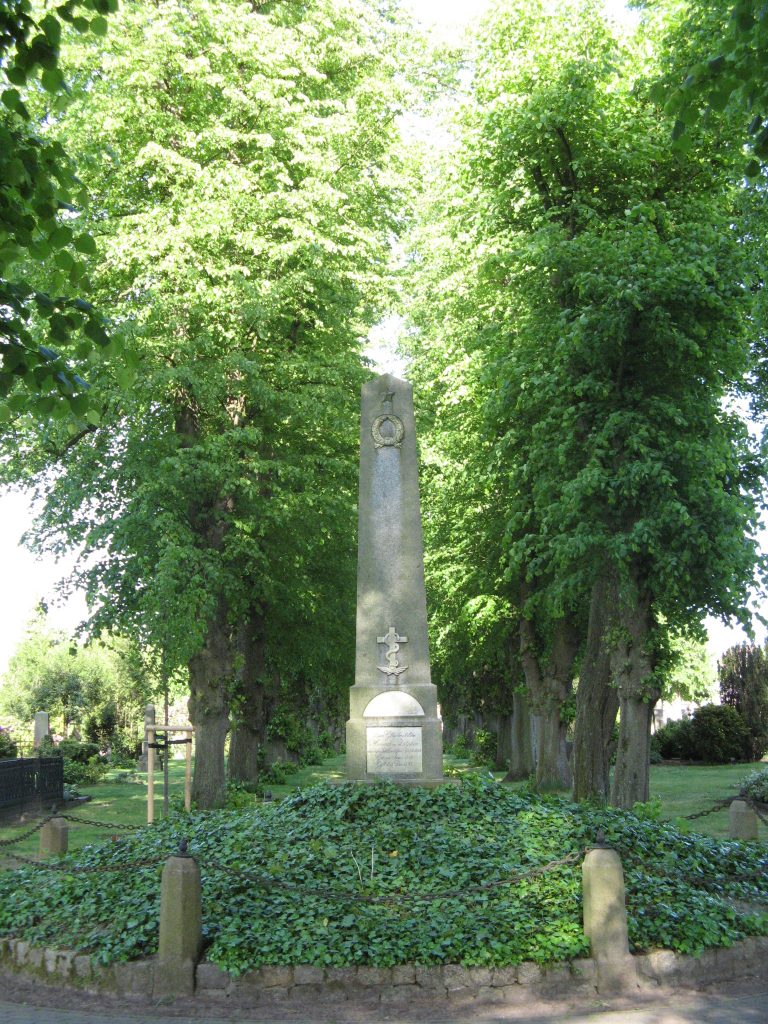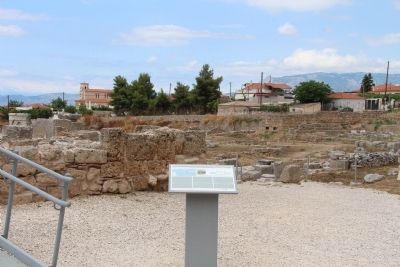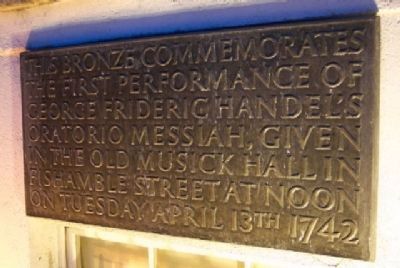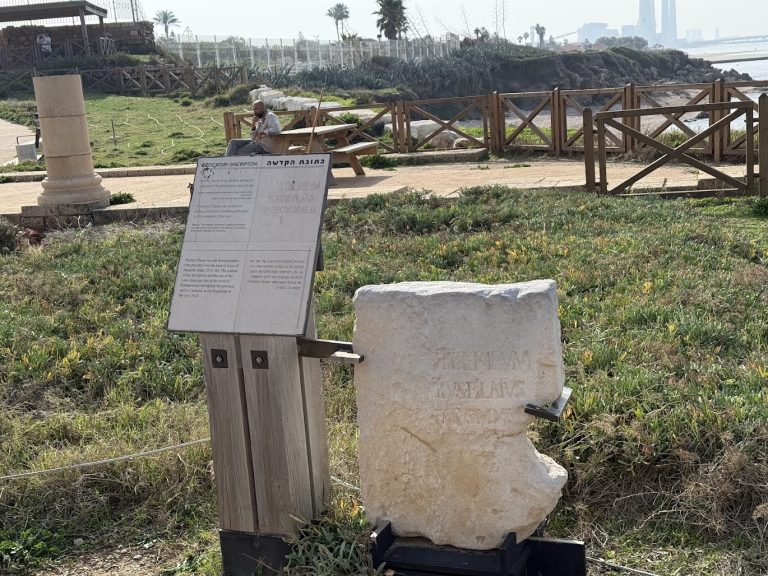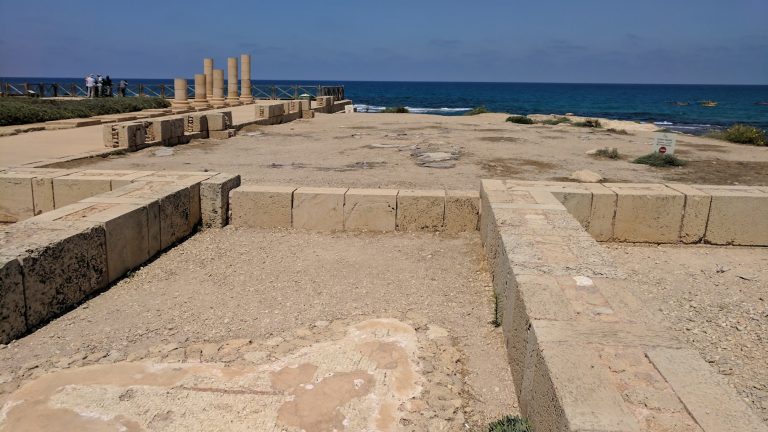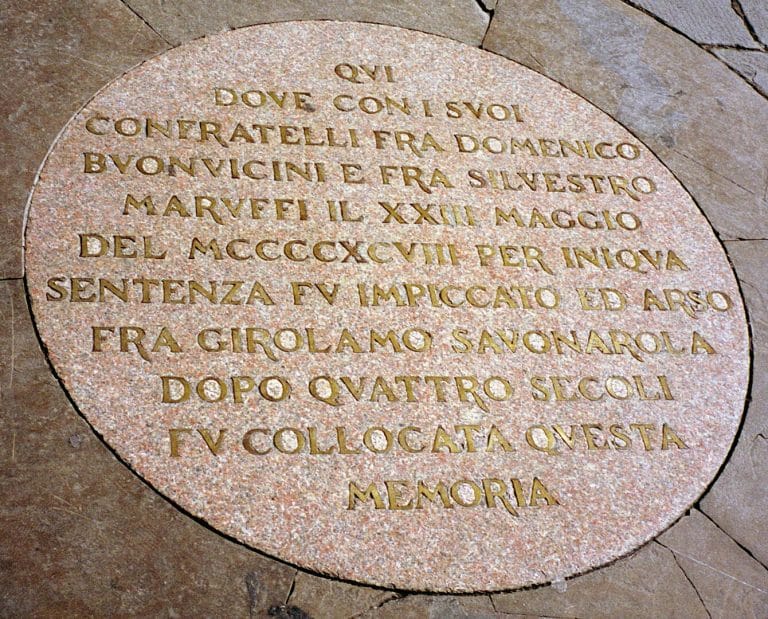Favorite
Learn more at https://acl.asn.au/resources/eternity/ From Facebook: Arthur Stace, a homeless alcoholic lived in the Streets of Sydney, Australia. After a conversion to Christianity, he quit drinking, and spent the rest of his life writing the word “Eternity” all over the city in yellow chalk. He is said to have written it over five hundred thousand times. He is remembered in Read more...
Favorite
“There were suggestions that the city should erect a plaque to his memory. One idea was that there should be a statue in Railway Square depicting Stace kneeling, chalk in hand. In 1968 the Sydney City Council decided to perpetuate Stace’s one-word sermon by putting down permanent plaques in “numerous” locations throughout the city. But a team of City Commissioners Read more...
Favorite
Christian Hall of Fame: William Tyndale was ordained as a priest in 1521, having studied Greek diligently at Oxford and Cambridge Universities, specifically the Textus Receptus. He conferred with Luther in Germany and stayed on the continent translating the Bible from Greek into English and smuggling New Testaments into England. He was betrayed by a friend and was arrested in Read more...
Favorite
The subject of Chariots of Fire, returned to China as a missionary after the Olympics. During World War II he was kept in a Japanese Internment Camp known as Weixian Internment Camp. Featured Image Credit: Alexandquan, CC BY-SA 4.0 <https://creativecommons.org/licenses/by-sa/4.0>, via Wikimedia Commons Other photos available from Nicholas Kitto Photos from 1991 http://www.weihsien-paintings.org/NormanCliff/people/individuals/Eric01/txt_monument.htm https://churchleaders.com/daily-buzz/261525-chinas-hero-eric-liddell-honored-statue.html Read more...
Favorite
The plaque: Here stood the house of ETIENNE MANGIN in which was constructed the first Reformed Church of France. In front of this location 14 Reformists, arrested during a cult, were burned on October 8, 1546 at the decree of the Parliament in Paris on October 4, 1546. Offered by the City of Meaux 1985 Author’s note – I spent a Read more...
Favorite
One of the first victims of the St. Bartholomew’s Day Massacre, was Gaspard de Coligny of Châtillon. His great grandson would be the King of England. Wounded in battle and later knighted, he became Colonel-General of the infantry. His brother Andelot, a recent Protestant convert, sent Coligny a devotional book that appeared to contribute to Coligny’s own conversion. Coligny’s efforts for Read more...
Favorite
From Wikipedia: At the place of execution, he knelt down, spread out his hands, and prayed aloud. The executioner undressed Hus and tied his hands behind his back with ropes, and bound his neck with a chain to a stake around which wood and straw had been piled up so that it covered him to the neck. At the last Read more...
Favorite
From Wikipedia: Dietrich Bonhoeffer (German: [ˈdiːtʁɪç ˈbɔn.høː.fɐ] (listen); 4 February 1906 – 9 April 1945) was a Lutheran pastor, theologian, anti-Nazi dissident, and key founding member of the Confessing Church. His writings on Christianity’s role in the secular world have become widely influential, and his book The Cost of Discipleship has been described as a modern classic.[1] Apart from his theological writings, Bonhoeffer was known for his staunch resistance to the Nazi dictatorship, including Read more...
Favorite
From Wikipedia: Martin Luther’s death house is a building in the Lutherstadt Eisleben at Andreaskirchplatz, which was assumed to be the reformer Martin Luther died here on February 18, 1546. However, according to recent research, the house of today’s hotel „Graf von Mansfeld“ on the market is the actual house where he died. The house on Andreaskirchplatz is now used as a museum. It was Read more...
Favorite
In diesem hause wurde geboren Dr. M. Luther den 10. November 1483. ———————— In this house was born Dr. M. Luther on 10 November 1483. Image Credit: Martin Luther Death House Historical Marker. 28 Jan. 2022, www.hmdb.org/m.asp?m=70220. Read more...
Favorite
Hi, I’m Pastor Lutzer, and we are here in Berlin, Germany. Many of us are touring not only Berlin but also other significant sites throughout Germany, seeking lessons that are vital to us as we face our own challenges in this generation. Today, we are standing at what was known as the Ministry of Defense, even during Hitler’s time. Some Read more...
Favorite
Hi, this is Pastor Lutzer, and we’re here in Berlin, standing in the square where the infamous book burnings took place. It was here that Joseph Goebbels delivered a fiery speech, if we can call it that, declaring that the books being burned were filled with filth — specifically, what he called “Jewish filth.” In this very square, books by Read more...
Favorite
From Worms.de The world’s largest monument to the Reformation, inaugurated in 1868. Luther’s hymn “A Mighty Fortress is our God”, hewn in stone, frames the bronze statues. Martin Luther rises above earlier reformers, the ‘proto-reformers’, surrounded by lords, scholars and personifications of important cities from the immediate and subsequent history of the Reformation. Bronze reliefs depicting scenes from the Reformation Read more...
Favorite
From Wikipedia: A bronze statue of reformer and theologian Martin Luther, which survived the bombings, has been restored and again stands in front of the church. It is the work of sculptor Adolf von Donndorf from 1885. Photograph Bundesarchiv, Bild 183-60015-0002 / Giso Löwe / CC-BY-SA 3.0 Read more...
Favorite
Jacob Probst’s Report of Hendrik van Zutphen’s Martyrdom Jacob of Ypres, to the true disciple of Christ, Martin Luther: Grace and peace from God the Father and our Lord Jesus Christ, who is our only mediator and a priest into eternity [1 Tim. 2:5; Heb. 5:6]. What should I say, dearest brothers? Where should I begin? The soul is in Read more...
Favorite
Inscription: Saint Paul is also known as the Apostle of the Nations because of his missionary journeys throughout the eastern Mediterranean (46-58 AD) for the dissemination of Christianity. In this context he visited several Greek cities, including Samothrace, Philippi, Thessalonica, Berea, Athens, and, most importantly, Corinth. Corinth, a Roman imperial colony and capital of the province of Achaea (Peloponnese Read more...
Favorite
This bronze commemorates the first performance of George Frideric Handel’s Oratorio Messiah, given in the Old Musick Hall in Fishamble Street at noon on Tuesday April 13th 1742 Featured Image Credit: First Performance of Handel’s Messiah Historical Marker. 20 Sept. 2024, www.hmdb.org/m.asp?m=22450. Read more...
Favorite
Discovered in 1961, this is the only contemporary record of Pilate outside of the Bible Inscription: “(Po)ntius Pilatus, the prefect of Judaea, (erected) a (building dedicated) to (the emperor) Tiberius”. Replica. The original inscription, found in secondary use during the excavations of the theater, is on display at the Israel Museum in Jerusalem. Pontius Pilatus was the Roman prefect who Read more...
Favorite
Acts 25:23 “And on the morrow, when Agrippa was come, and Bernice, with great pomp, and was entered into the place of hearing, with the chief captains, and principal men of the city, at Festus’ commandment Paul was brought forth.” Text of Marker: “For if I be an offender, or have committed any thing worthy of death, I refuse Read more...
Favorite
In 1498, Savonarola was executed. Unconventional yet popular with the masses, he differed from the established church: Philip Schaff: By the general consent of Protestants, Jerome Savonarola is numbered among the precursors of the Reformation,—the view taken by Ranke. He was not an advocate of its distinguishing tenet of justification by faith. The Roman church was for him the Read more...
